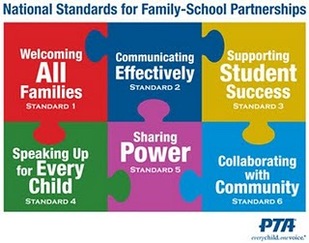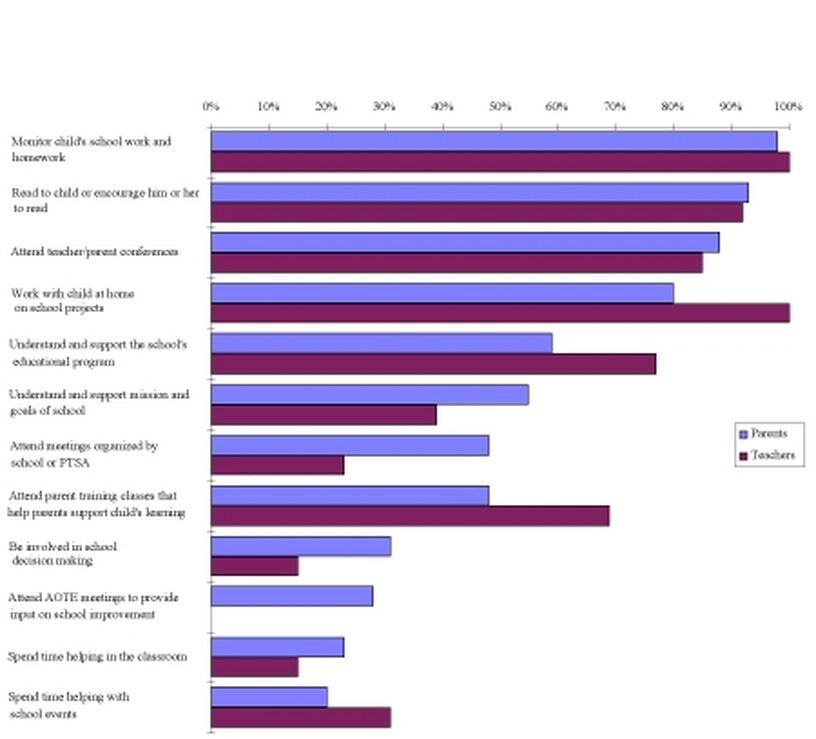Types Of Parental Involvement

http://bigeducationape.blogspot.com/2009_11_16_archive.html
There are many different types of parental
involvement, and each play a different role in students’ educational growth.
Parents should try to get involved with their child’s education at an early age
because studies have shown it to have the greatest effects. Joyce Epstein
developed a structure to define the different types of parental involvement.
She broke them down into six categories: parenting, communicating,
volunteering, learning at home, decision making, and collaborating with the
community. The parenting category was put into place to help establish a home environment
that would support the children as students. Some ways to incorporate the
parenting category are to moderate television, video games, and computer usage.
Parents can also get training to help them learn ways to be involved with their
children throughout all stages of their education. Communicating is the second
category that Joyce Epstein put into place. This category is meant to establish
communication between home and the school. Parent teacher conferences are the
biggest aspect of this category. Parents are able to get a better understanding
of the workings of their child’s classroom and are better aware of their
child’s progress in the classroom. In turn, they will know what is or isn’t
working for their child, and the child will be more aware of their progress in
the class. The third type of parental involvement is volunteering. This is used
when recruiting parental support in the schools. Parents can volunteer to help
out in the classroom or in the school. This allows the parents to get a better
understanding of the job that teachers have and thus how to enhance their
child’s education. Her fourth type of parental involvement is learning at home
in which parents help their children with their homework or other school-related
activities. When parents help their children at home with their school work,
the students have higher homework completion levels and grow in their abilities
as students. Including parents in decisions at school is the fifth type of
Joyce Epstein’s framework of parental involvement. When parents get involved
with the decisions at school, they get to have their own input, and both the
student and the parents are made more aware of the policies set in place by the
school. The sixth and final category is collaborating with the community.
Collaborating with the community allows parents to strengthen school programs
by using resources from within the community. With this type of involvement,
students can develop skills by the different programs set up in the community
and learn about future careers that they might not have known about before
their participation in the different programs offered in the community (What Research Says About
Parent Involvement in Children's Education: In Relation to Academic
Achievement).
Whether attending parent teacher conferences, volunteering at the school, or
helping with homework at home, parental involvement is important.

